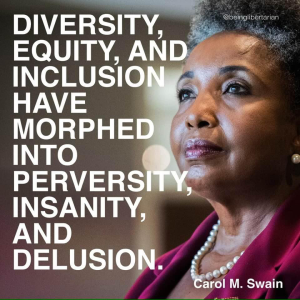Tbf if Easter were based on gods calendar, one of the best trivia questions, how is Easter determined, wouldn’t be as fun.So satanists want to add some more satanic things to a satanic holiday disguised as a Christian one?
Shocking.
Maybe Christians should start basing Christ’s resurrection on the actual date based on God’s calendar rather than a sick fucking pagan ritual killing babies for the blood to soak eggs in.
Also, Christians should realize the Friday crucifixion is 100% crap because it cannot equal three days and three nights. They ditched actual history for pagan bullshit.
-
In Memory of Rebarcock.
As we navigate life without Pat 'Rebarcock.' Flood, who passed on Sept 21, 2025, we continue to remember the profound impact he had on our community. His support was a cornerstone for our forum. We encourage you to visit the memorial thread to share your memories and condolences. In honor of Pat’s love for storytelling, please contribute to his ‘Rebarcock tells a story’ thread. Your stories will help keep his spirit alive among us.
You are using an out of date browser. It may not display this or other websites correctly.
You should upgrade or use an alternative browser.
You should upgrade or use an alternative browser.
Master Thread Dance Your Cares Away/Fraggle/Law Abiding Citizens
- Thread starter Bryan74b
- Start date
Master Threads
Time is now for eye for an eye shit. Justice system is a fucking joke. Father of the murdered boy should straight up murder any n all of the scum involved as they're being transported to n from court.
One on the left ragging?View attachment 214752
Best I can do on short notice
If you can have @Jayhox FedEx me a couple of size “S” I’ll send an update
Fkn loser with his hat on backward probably came back and robbed him.Why can't this happen to me?
Joe Biden took a train across this bridge when marching for civil rights with MLK & Jesse Jackson.
Tbf if Easter were based on gods calendar, one of the best trivia questions, how is Easter determined, wouldn’t be as fun.
I've always wondered why the date bounces around?
Can you enlighten me?
TIA
I've always wondered why the date bounces around?
Can you enlighten me?
TIA
How Is Easter Determined?
Easter falls on the first Sunday after the Full Moon date, based on mathematical calculations, that falls on or after March 21. If the Full Moon is on a Sunday, Easter is celebrated on the following Sunday.Although Easter is liturgically related to the beginning of spring in the Northern Hemisphere (March equinox) and the Full Moon, its date is not based on the actual astronomical date of either event.
- March 21 is the Church's date of the March equinox, regardless of the time zone, while the actual date of the equinox varies between March 19 and March 22, and the date depends on the time zone.
- The date of the Paschal Full Moon, used to determine the date of Easter, is based on mathematical approximations following a 19-year cycle called the Metonic cycle.
How Is Easter Determined?
Easter falls on the first Sunday after the Full Moon date, based on mathematical calculations, that falls on or after March 21. If the Full Moon is on a Sunday, Easter is celebrated on the following Sunday.
Although Easter is liturgically related to the beginning of spring in the Northern Hemisphere (March equinox) and the Full Moon, its date is not based on the actual astronomical date of either event.
Both dates may coincide with the dates of the astronomical events, but in some years, they don't.
- March 21 is the Church's date of the March equinox, regardless of the time zone, while the actual date of the equinox varies between March 19 and March 22, and the date depends on the time zone.
- The date of the Paschal Full Moon, used to determine the date of Easter, is based on mathematical approximations following a 19-year cycle called the Metonic cycle.

Can we just research history and celebrate that date?
Like Christmas
It’s the first Sunday after the first full moon of Spring
Can we just research history and celebrate that date?
Like Christmas
Finally some science explains the bridge collapse. I knew it had nothing to do with the ship.Oh, no!
We need a tax assessment to fight this!
Strongest ocean current on Earth is speeding up and causing problems
Story by Sanjana Gajbhiye
• 4h • 4 min read

Strongest ocean current on Earth is speeding up and causing problems© Provided by Earth
The Antarctic Circumpolar Current (ACC) is the most powerful current on Earth, encircling Antarctica and influencing the global climate.
Over the last few decades, observations show that it has been speeding up. Experts were uncertain whether this was a result of human-caused warming or a natural pattern.
However, scientists have discovered that this oceanic powerhouse is getting even stronger. What does this mean for our planet's future?
Met a person today that still thinks the Steele Dossier being a hoax is a hoax. Anyone got a solid piece of info I can send this person to help red pill? TIA.
Last edited:
At this point punch them in the face and walk awayMet a person today that still thinks the Steele Dossier being a hoax is a hoax. Anyone got a solid piece of info I can send this person to help red pill? TIA.
Anyone that fucking stupid, no evidence will suffice.Met a person today that still thinks the Steele Dossier being a hoax is a hoax. Anyone got a solid piece of info I can send this person to help red pill? TIA.
I think I may have a shot to red pill, but I get it lolAt this point punch them in the face and walk away
I think they are just caught up in MSM and believe itAnyone that fucking stupid, no evidence will suffice.
This is a pretty good article considering it is USA.Met a person today that still thinks the Steele Dossier being a hoax is a hoax. Anyone got a solid piece of info I can send this person to help red pill? TIA.

Trump was right: 'Russian collusion' was a hoax. Good luck regaining public's trust.
Special Counsel John Durham slams the FBI’s investigation – dubbed Crossfire Hurricane – of Trump campaign for its “serious lack of analytic rigor.”
9Mounties07
Legendary
SkinnyMet a person today that still thinks the Steele Dossier being a hoax is a hoax. Anyone got a solid piece of info I can send this person to help red pill? TIA.
...were you in the grid?
LISTEN
I've always wondered why the date bounces around?
Can you enlighten me?
TIA
How Is Easter Determined?
Easter falls on the first Sunday after the Full Moon date, based on mathematical calculations, that falls on or after March 21. If the Full Moon is on a Sunday, Easter is celebrated on the following Sunday.
Although Easter is liturgically related to the beginning of spring in the Northern Hemisphere (March equinox) and the Full Moon, its date is not based on the actual astronomical date of either event.
Both dates may coincide with the dates of the astronomical events, but in some years, they don't.
- March 21 is the Church's date of the March equinox, regardless of the time zone, while the actual date of the equinox varies between March 19 and March 22, and the date depends on the time zone.
- The date of the Paschal Full Moon, used to determine the date of Easter, is based on mathematical approximations following a 19-year cycle called the Metonic cycle.
Public service announcement: Why Orthodox Easter differs from Catholic/Protestant Easter (no, it's not mainly due to the Julian calendar)
There have been a lot of threads asking this question recently, so I decided to write up a full explanation (which can be referenced every year).
First, let's debunk a myth right away. You may have heard that Orthodox Easter (Pascha) is later because the Orthodox have a rule that Pascha must be celebrated after the Jewish Passover. **This is false, we have no rule regarding Passover and it wouldn't explain the Catholic-Orthodox difference on most years even if we did.** Passover is an eight-day celebration (outside of the Holy Land) or a week-long celebration (in the Holy Land). On some years Orthodox Easter falls during that period, on other years Catholic Easter falls during that period, and on some years they both do. For example, in 2017, the Jewish Passover was from April 10 (Monday) to April 18 (Tuesday). Orthodox and Catholic Easters were on the same day, which was Sunday, April 16. So Orthodox Easter can obviously occur *during* Passover.
Yet this year, 2023, Catholic Easter is once again occurring during the Jewish Passover (the Passover is April 5-13 and Catholic Easter is April 9), while Orthodox Easter in a week later, on April 16. Why is Orthodox Easter after the Passover this year and not *during* the Passover (and at the same time as Catholic Easter) like it was in 2017? *Because the Passover has nothing to do with it.*
So, with that myth out of the way, let's talk about how the date of Easter is actually calculated. Both the Orthodox and the Catholics use the same formula, we just input different data into it. The formula is as follows:
**Easter is on the first Sunday after the first full moon that falls after (or on) the vernal equinox.**
We get different dates because we input different numbers for the vernal equinox AND FOR THE FULL MOON.
I wrote that last part in all caps because it's actually the full moon dates that create the most common difference in the dates of the two Easters (one week). Many people don't realize this, and will provide an incomplete explanation of the Easter date difference, saying something like this:
> "Orthodox and Catholics have different Easter dates because the Orthodox calculate it using the Julian Calendar and the Catholics calculate it using the Gregorian calendar."
This is only partially correct. Yes, we do use those two different calendars for deciding the date of the vernal equinox (which we then input into the formula above). Simply put, if you look at your average, ordinary wall calendar (or your Google calendar), the Catholics/Protestants count the vernal equinox as being on March 21 and the Orthodox count it as being on April 3. But wait... *this can't create a one-week difference between the Easters!* This can only create a month-long gap, and most of the time it doesn't actually matter. Let me explain:
- If there is a full moon *between* March 21 and April 3, the Julian-Gregorian difference matters, as the Catholics will use this full moon to calculate Easter while the Orthodox will wait for the next one, creating a month-long gap between the Easters.
- If there is no full moon between March 21 and April 3, both Churches will use the first full moon after April 3, so the calendar difference doesn't matter.
So this *should* result in identical Easter dates on most years. But instead, they are usually one week apart. Why? Because of the Lunar Tables. This is where the date of the full moon comes in.
The Lunar Tables are ancient or medieval spreadsheets that we use to calculate when the full moon supposedly occurs. Neither the Orthodox nor the Catholics use fully accurate ones. The difference between them is such that the "Orthodox full moon" is a few days later than the "Catholic full moon" (4 or 5 days to be exact, depending on the month and year). So, when the "Catholic full moon" is on a Friday for example, then Catholic Easter is the following Sunday, but that means that the "Orthodox full moon" is on the next Tuesday or Wednesday, so Orthodox Easter is a week later.
All of this put together basically means that there are 3 possible ways that the difference in Easter dates can play out, depending on the year:
1. If there is a full moon *between* March 21 and April 3, the Catholics will use this full moon to calculate Easter while the Orthodox will wait for the next one, creating a month-long gap between the Easters. This happened most recently in 2021 and will happen again in 2024.
2. If there is no full moon between March 21 and April 3, both Churches will use the first full moon after April 3, but then the different Lunar Tables come into play. If the "Catholic full moon" after April 3 falls on a Tuesday, Wednesday, Thursday, Friday, or Saturday, then Catholic Easter will be the following Sunday but Orthodox Easter will be one week later. **This creates the one-week difference that is the most common occurrence.**
3. If there is no full moon between March 21 and April 3, AND if the "Catholic full moon" after April 3 falls on a Sunday or Monday, then Catholic Easter AND Orthodox Easter will be the following Sunday, at the same time. This happened most recently in 2017 and will happen again in 2025.
And now you know!
There have been a lot of threads asking this question recently, so I decided to write up a full explanation (which can be referenced every year).
First, let's debunk a myth right away. You may have heard that Orthodox Easter (Pascha) is later because the Orthodox have a rule that Pascha must be celebrated after the Jewish Passover. **This is false, we have no rule regarding Passover and it wouldn't explain the Catholic-Orthodox difference on most years even if we did.** Passover is an eight-day celebration (outside of the Holy Land) or a week-long celebration (in the Holy Land). On some years Orthodox Easter falls during that period, on other years Catholic Easter falls during that period, and on some years they both do. For example, in 2017, the Jewish Passover was from April 10 (Monday) to April 18 (Tuesday). Orthodox and Catholic Easters were on the same day, which was Sunday, April 16. So Orthodox Easter can obviously occur *during* Passover.
Yet this year, 2023, Catholic Easter is once again occurring during the Jewish Passover (the Passover is April 5-13 and Catholic Easter is April 9), while Orthodox Easter in a week later, on April 16. Why is Orthodox Easter after the Passover this year and not *during* the Passover (and at the same time as Catholic Easter) like it was in 2017? *Because the Passover has nothing to do with it.*
So, with that myth out of the way, let's talk about how the date of Easter is actually calculated. Both the Orthodox and the Catholics use the same formula, we just input different data into it. The formula is as follows:
**Easter is on the first Sunday after the first full moon that falls after (or on) the vernal equinox.**
We get different dates because we input different numbers for the vernal equinox AND FOR THE FULL MOON.
I wrote that last part in all caps because it's actually the full moon dates that create the most common difference in the dates of the two Easters (one week). Many people don't realize this, and will provide an incomplete explanation of the Easter date difference, saying something like this:
> "Orthodox and Catholics have different Easter dates because the Orthodox calculate it using the Julian Calendar and the Catholics calculate it using the Gregorian calendar."
This is only partially correct. Yes, we do use those two different calendars for deciding the date of the vernal equinox (which we then input into the formula above). Simply put, if you look at your average, ordinary wall calendar (or your Google calendar), the Catholics/Protestants count the vernal equinox as being on March 21 and the Orthodox count it as being on April 3. But wait... *this can't create a one-week difference between the Easters!* This can only create a month-long gap, and most of the time it doesn't actually matter. Let me explain:
- If there is a full moon *between* March 21 and April 3, the Julian-Gregorian difference matters, as the Catholics will use this full moon to calculate Easter while the Orthodox will wait for the next one, creating a month-long gap between the Easters.
- If there is no full moon between March 21 and April 3, both Churches will use the first full moon after April 3, so the calendar difference doesn't matter.
So this *should* result in identical Easter dates on most years. But instead, they are usually one week apart. Why? Because of the Lunar Tables. This is where the date of the full moon comes in.
The Lunar Tables are ancient or medieval spreadsheets that we use to calculate when the full moon supposedly occurs. Neither the Orthodox nor the Catholics use fully accurate ones. The difference between them is such that the "Orthodox full moon" is a few days later than the "Catholic full moon" (4 or 5 days to be exact, depending on the month and year). So, when the "Catholic full moon" is on a Friday for example, then Catholic Easter is the following Sunday, but that means that the "Orthodox full moon" is on the next Tuesday or Wednesday, so Orthodox Easter is a week later.
All of this put together basically means that there are 3 possible ways that the difference in Easter dates can play out, depending on the year:
1. If there is a full moon *between* March 21 and April 3, the Catholics will use this full moon to calculate Easter while the Orthodox will wait for the next one, creating a month-long gap between the Easters. This happened most recently in 2021 and will happen again in 2024.
2. If there is no full moon between March 21 and April 3, both Churches will use the first full moon after April 3, but then the different Lunar Tables come into play. If the "Catholic full moon" after April 3 falls on a Tuesday, Wednesday, Thursday, Friday, or Saturday, then Catholic Easter will be the following Sunday but Orthodox Easter will be one week later. **This creates the one-week difference that is the most common occurrence.**
3. If there is no full moon between March 21 and April 3, AND if the "Catholic full moon" after April 3 falls on a Sunday or Monday, then Catholic Easter AND Orthodox Easter will be the following Sunday, at the same time. This happened most recently in 2017 and will happen again in 2025.
And now you know!
I'm just posting without comment.
Long Cat V2.0
Legendary
Instead they got promotions.
ShaolinNole
Legendary
Met a person today that still thinks the Steele Dossier being a hoax is a hoax. Anyone got a solid piece of info I can send this person to help red pill? TIA.
Not hard to find. If he cites the NYTimes or Wapo as any type of credible countersource, since they have recently spewed more BS to counter the truth, you know he has the IQ of soggy rice.

Trump was right: 'Russian collusion' was a hoax. Good luck regaining public's trust.
Special Counsel John Durham slams the FBI’s investigation – dubbed Crossfire Hurricane – of Trump campaign for its “serious lack of analytic rigor.”

The real ‘collusion’ was the creation of ‘RussiaGate’ out of absolutely nothing
They made it all up. If you haven’t been paying attention to all the ins and outs of RussiaGate and the so-called “collusion” scandal, that’s all you need to know about Thur…

Why The Media Stopped Reporting The Russia Collusion Story
The press has played an active role in the Trump-Russia collusion story since its inception. It helped birth it. That's why they're done now.

Adam Schiff lied about the Trump investigation — and the media let him
Last week, Acting Director of National Intelligence Richard Grenell forced Democratic Congressman Adam Schiff’s hand. If the chairman of the House Intelligence Committee didn’t release the transcri…

The Immunity Option: How Congress Could Have the Final Say on the Russian Collusion Scandal
For those interested in the truth about the Russian collusion investigation, the Durham Report has hundreds of pages of details of the alliance of political, government and media figures behind arg…
 jonathanturley.org
jonathanturley.org
Repeat a lie often enough...I think they are just caught up in MSM and believe it
OPD77
Legendary
FIFYHave you seen his husband?
Similar threads
- Replies
- 13
- Views
- 518
- Replies
- 4
- Views
- 195
- Replies
- 0
- Views
- 2K
- Replies
- 56
- Views
- 4K





